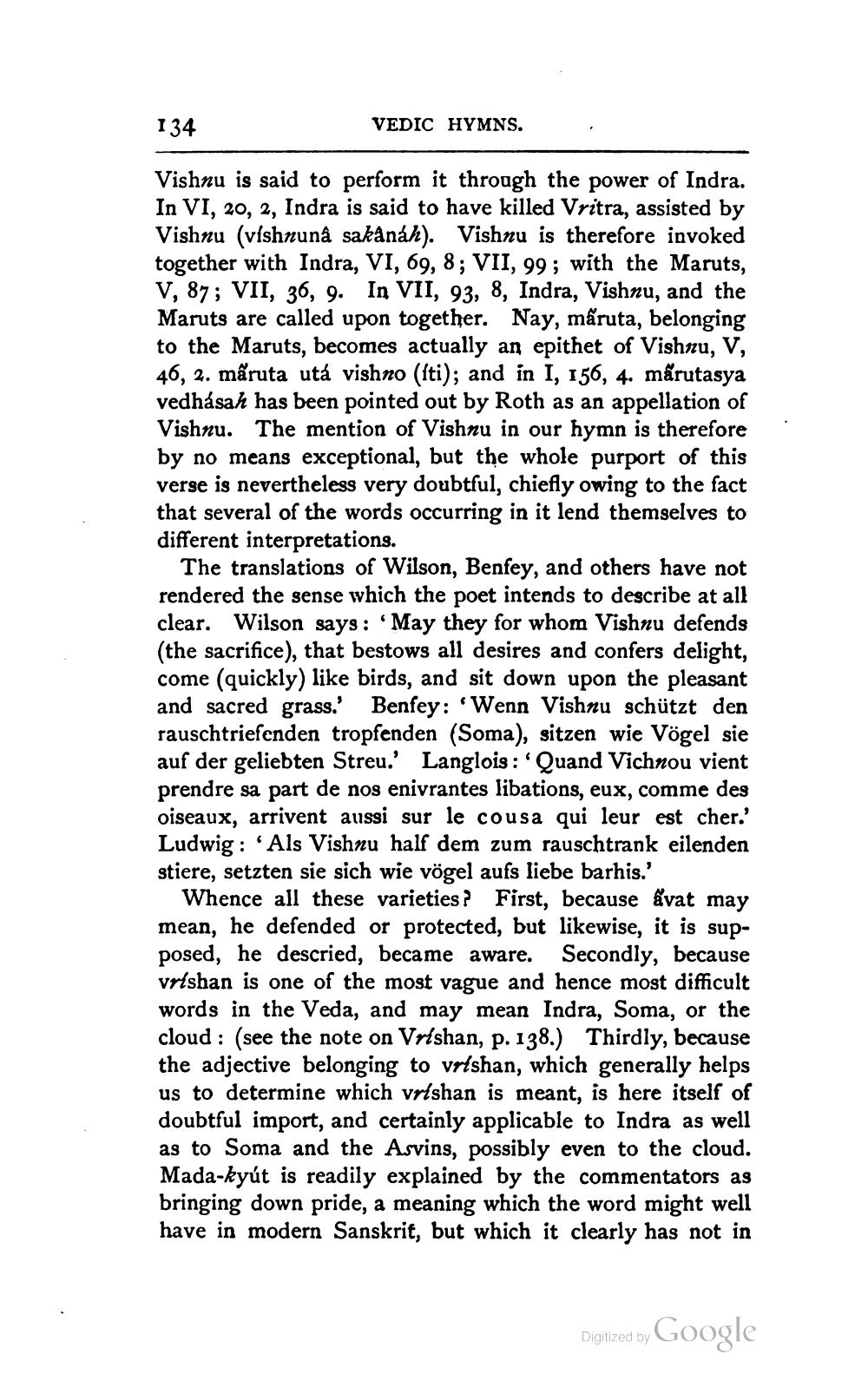________________
134
VEDIC HYMNS.
Vishnu is said to perform it through the power of Indra. In VI, 20, 2, Indra is said to have killed Vritra, assisted by Vishnu (vishnunâ sakanáh). Vishnu is therefore invoked together with Indra, VI, 69, 8; VII, 99; with the Maruts, V, 87; VII, 36, 9. In VII, 93, 8, Indra, Vishnu, and the Maruts are called upon together. Nay, mãruta, belonging to the Maruts, becomes actually an epithet of Vishnu, V, 46, 2. mãruta utá vishno (Iti); and in I, 156, 4. mãrutasya vedhásah has been pointed out by Roth as an appellation of Vishnu. The mention of Vishnu in our hymn is therefore by no means exceptional, but the whole purport of this verse is nevertheless very doubtful, chiefly owing to the fact that several of the words occurring in it lend themselves to different interpretations.
The translations of Wilson, Benfey, and others have not rendered the sense which the poet intends to describe at all clear. Wilson says: "May they for whom Vishnu defends (the sacrifice), that bestows all desires and confers delight, come (quickly) like birds, and sit down upon the pleasant and sacred grass.' Benfey: Wenn Vishnu schützt den rauschtriefenden tropfenden (Soma), sitzen wie Vögel sie auf der geliebten Streu.' Langlois : 'Quand Vichnou vient prendre sa part de nos enivrantes libations, eux, comme des oiseaux, arrivent aussi sur le cousa qui leur est cher.' Ludwig: 'Als Vishnu half dem zum rauschtrank eilenden stiere, setzten sie sich wie vögel aufs liebe barhis.'
Whence all these varieties? First, because ávat may mean, he defended or protected, but likewise, it is supposed, he descried, became aware. Secondly, because vrlshan is one of the most vague and hence most difficult words in the Veda, and may mean Indra, Soma, or the cloud : (see the note on Vrlshan, p. 138.) Thirdly, because the adjective belonging to vrlshan, which generally helps us to determine which vrlshan is meant, is here itself of doubtful import, and certainly applicable to Indra as well as to Soma and the Asvins, possibly even to the cloud. Mada-kyút is readily explained by the commentators as bringing down pride, a meaning which the word might well have in modern Sanskrit, but which it clearly has not in
Digitized by
Digitized by Google




